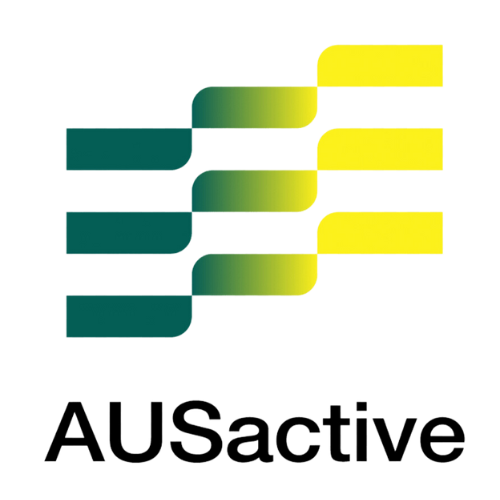Did you know you can update your policy details and download policy documents with the click of a button in PolicyHub? see what else you can do in PolicyHub |
Insurance for fitness professionals, gyms, and fitness centres
As a fitness professional, you need to know that your insurance policy is always in fit form. Which is why we’ve made sure our policies are informed by fitness professionals to suit the unique needs of your profession.
You can keep thriving knowing you’re protected by an insurance company with your best interests as a fitness professional at heart.

Professional indemnity and liability
Protects you for what you do as a fitness professional personal trainer or instructor.

Business
insurance
Protects your gym, fitness centre or training facility for building, contents and more.
Professional indemnity insurance covers you for your civil liability when a claim arises from a breach of your professional duty. For many professional policies at Guild Insurance combine professional indemnity, public liability, and product liability to cover more of your professional duties. Business insurance, on the other hand, is a broader category that encompasses various types of coverage designed to protect businesses from a wide range of risks. This can include property damage, theft, and liability claims from third parties.
For professionals providing advice or services:
- Assess your service risk: Evaluate the potential risks associated with your professional advice or services. Consider the possibility and implications of your advice or actions leading to a client's physical, psychological, or financial detriment. Reflect on the likelihood and consequences of a situation where an error or omission on your part could lead to legal action.
- Understand legal requirements: Familiarise yourself with the legal and regulatory landscape relevant to your profession. Is holding professional indemnity insurance a legal requirement or an industry standard in your field?
For certain contract positions and many allied health professionals regulated under Ahpra require professional indemnity and/or public liability insurance. - Consider your financial exposure: If faced with a legal claim, could you afford the legal defence and potential damages out of pocket?
For business owners protecting their operations:
- Identify your business assets: Determine which physical assets are crucial to your business operations, such as property, equipment, and inventory. Consider the consequences if these assets were damaged, stolen or lost.
- Evaluate liability risks: How likely is it that someone could be injured or their property damaged because of your business activities? This includes both public liability and product liability.
- Consider business interruptions: Think about the resilience of your business in the face of unforeseen events that might force temporary closure. How would such interruptions impact your financial stability?
If you are unsure of the cover you require, please contact us on 1800 810 213 to speak to an insurance specialist.

Key Product Features
Discover the limits and coverage built in to every Guild fitness liabilities policy.
Vicarious Liability
The name/s on your policy are the names that are covered for. If it's not listed, it's not covered.
Yoga & Pilates insurance
Get peace of mind with tailored cover for your practice or studio as an instructor.
Why choose Guild Insurance as a fitness professional?
Unlike many of our competitors, we are a 100% owned direct insurer. Which means not only do we work with your association (AUSactive) with developing your policy, we work with them while administering it.
We don’t answer to an international head office, and your policy is secured right here in Australia. All decisions are made at Guild, by someone who has a relationship with your association.
We partner with:

Hear from other fitness professionals and gym owners
Feb 2024
I have been with Guild for over 4 years now and I have had such a great experience. Guild has always been flexible with my insurance cover when I have decided to stop Personal Training and then return... I have recommended them to 3 of my personal training colleagues...
May 2023
You guys insure exactly what you say you insure and pay when required - it's actually so refreshing
Feb 2024
Every time I've called Guild, the people I've spoken with have been very helpful, knowledgeable, polite and looked after me well. Thank you Guild : )

Working with over 130 associations

Insuring Australians for over 60 years

100% Australian owned
Learn how fitness professionals avoid claims with RiskHQ
Client Records for fitness professionals
Client record keeping is unfortunately one of those dreaded risk management topics. Guild Insurance understands that it isn’t the most interesting of topics for fitness professionals to spend time thinking and talking about. However, it’s
incredibly important, and Guild’s experience suggests many fitness professionals would benefit from learning more about good record keeping.
Record keeping and insurance claims
Why is an insurer so concerned about record keeping? It’s because client records can greatly impact insurance claims in two ways:
1. Poor records may make a complaint, and therefore an insurance claim, difficult to defend due to the lack of evidence.
2. And surprisingly to some, poor records can contribute to poor or unexpected outcomes following training sessions, such as an injury, leading to the client complaining and possibly seeking some form of compensation.
All fitness professionals would want to avoid client injuries as the wellbeing of their clients is paramount. They would also want to avoid complaints, which can lead to insurance claims, as these can be very challenging and confronting experiences. Therefore, understanding how to improve the standard of client records really should be a core focus.
Why keep detailed client records?
Continuity of service
It’s not uncommon to hear professionals say they can remember the details of each of their clients and any interactions with them. However, at Guild we regularly see examples where professionals haven’t remembered key aspects of their sessions
or consultations, and this has led to a poor outcome for the client. It’s therefore imperative to record details about all training sessions, with specific information about what exercises were performed and how the client responded to
them. It’s also important to refer to this information within the client’s record when planning future sessions.
Professional expectation
All professionals need to be aware of the various expectations placed on them, which are there to assist them to carry out their work appropriately. And it’s a common expectation that professionals keep detailed records of client interaction;
this is no different for fitness professionals.
In the AUSactive Code of Ethical Conduct, it’s stated that AUSactive professionals are required to ‘Maintain complete records of services provided to clients, including records of pre-exercise screening, client progress, and referrals’.
Defence of a complaint
If there’s any allegation of wrongdoing made against a fitness professional, their records are going to be incredibly important. Those records provide evidence of what took place and why during sessions with clients. Without this, the professional
will be relying on their memory as a defence. Information recorded at the time of the session is going to hold greater weight as a reliable defence than a professional’s memory months after an event. As the saying goes ‘Good records =
good defence, poor records = poor defence and no records = no defence’.
Funding audit
Funding providers, such as private health insurers, regularly review the rebates they pay for services provided and can conduct audits to be sure professionals are billing appropriately. It’s not uncommon for a professional to receive a request
from a funding provider to produce records to justify their billing practices. If the reasons behind the service, and therefore the billing, isn’t clear, funding providers can demand repayment.
What to record?
The key question many professionals ask when it comes to record keeping is ‘how much detail do I need to record?’. Exactly what to include will vary according to the specifics of each fitness session as well as the individual client. However, generally records should include, but aren’t limited to:
- Client identifying details and contact information
- Pre exercise screening information
- Date of the session
- Relevant pre exercise discussion – for example, how the client is feeling and what their expectations are
- Details of all exercises including
- Warm up and cool down exercises
- Core program exercises
- Number of reps
- Number of sets
- Weights or resistance level
- Modifications made to the program
- Client’s response to exercises – did they struggle, feel pain or discomfort, are they ready to advance in the program etc
- Any instructions given to the client for exercise outside of the session times
- Referrals to health professionals or anyone else
When a professional is unsure if they’ve included enough detail, they should ask them self whether or not another professional could read the record and understand the full picture of what took place, without the need to fill in any gaps. If the full story isn’t there, there isn’t enough detail.
Professional and objective
Client records need to always be professional and objective. Constructive critical comments about the client can be included, however this must be professional and only done when relevant to the exercise instruction being provided. This may occur in situations where the client isn’t able to follow instructions or perform exercises correctly and this could lead to injuries or a lack of progression. However, it’s important to remember that client records can be accessed and read by several people, including the client, so always be mindful of the language used. The language should match the professional language a fitness professional would use when speaking to the client during an exercise session.
- Fitness
- Professional
- Record-keeping
More frequently asked questions for fitness professionals
The law governs that any professional exercise the required skill to an appropriate level expected by that profession. A professional may be liable for financial loss, injury or damage arising from an act, error or omission of fault if the professional has not acted to the required level of skill deemed in that profession. Failure through this may result in the claimant (person who suffered the loss) be awarded for that loss, damage or injury.
Many professions require you to hold a professional indemnity insurance policy by law, such as Ahpra registered professions, but can be for other industries such as financial institutions also. Please check with your registration body or associations of your profession to know if it is required by law to have professional indemnity insurance. It is often also required by companies who take on contract workers that are not governed under the companies own insurance policy. It is acceptable for a company to ask you as the professional contractor to provide evidence of cover for professional indemnity before starting the contract period.
As stated above professional indemnity insurance covers you for breaches in relation to your professional duty. Liability insurance covers you for activity that results in personal injury or property damage as a result of your business activities that do not relate to your specific profession. An example may be someone who trips and is injured from spilled water within your office may be covered under liability, because it is your duty of care as business person to provide a safe environment. Whereas a person who suffers a loss or injury because of your professional treatment in relation to your job has caused it would usually be consider as an indemnity breach.
Generally business insurance is to cover the physical assets of your business for material damage loss and options for theft cover. It can also include cover for financial loss due to business interruption. Usually basic insurance does not cover breach of duty or flood cover, but if you speak to an insurance specialist it can often be added to your policy for a nominal fee.
Depending on the policy you are taking out, covers will often vary. At Guild insurance we specialise in making a policy to suit your business so that you are not over paying for covers you wouldn't normally need. The best thing to do is call 1800 810 213 to speak to an insurance specialist, they can find out what activities and structure your business is in to then provide you with adequate cover for you.
A certificate of currency (or COC for short) is a written document that confirms that your insurance policy is current and valid at a specific date and time. At Guild we provide easy access to your COC at any time within a few clicks of our online portal PolicyHub. If you are a new customer we can provide you with one post purchase.
Login to PolicyHub for all your policy needs
- All-In-One Dashboard: Manage all your policies and documents in one place.
- Easy Updates: Quickly update personal and business details online.
- Enhanced Security: Protect your account with multi-factor authentication.
- Document Access: Instantly access policy documents and tax invoices.
- Claim Management: View current and past claims effortlessly.
- Flexible Payments: Update billing details.
- Policy Renewal & Reinstatement: Renew or reinstate policies with ease directly through PolicyHub.
- Certificates of Currency: Obtain proof of insurance with just a few clicks.









Write a review Average rating: